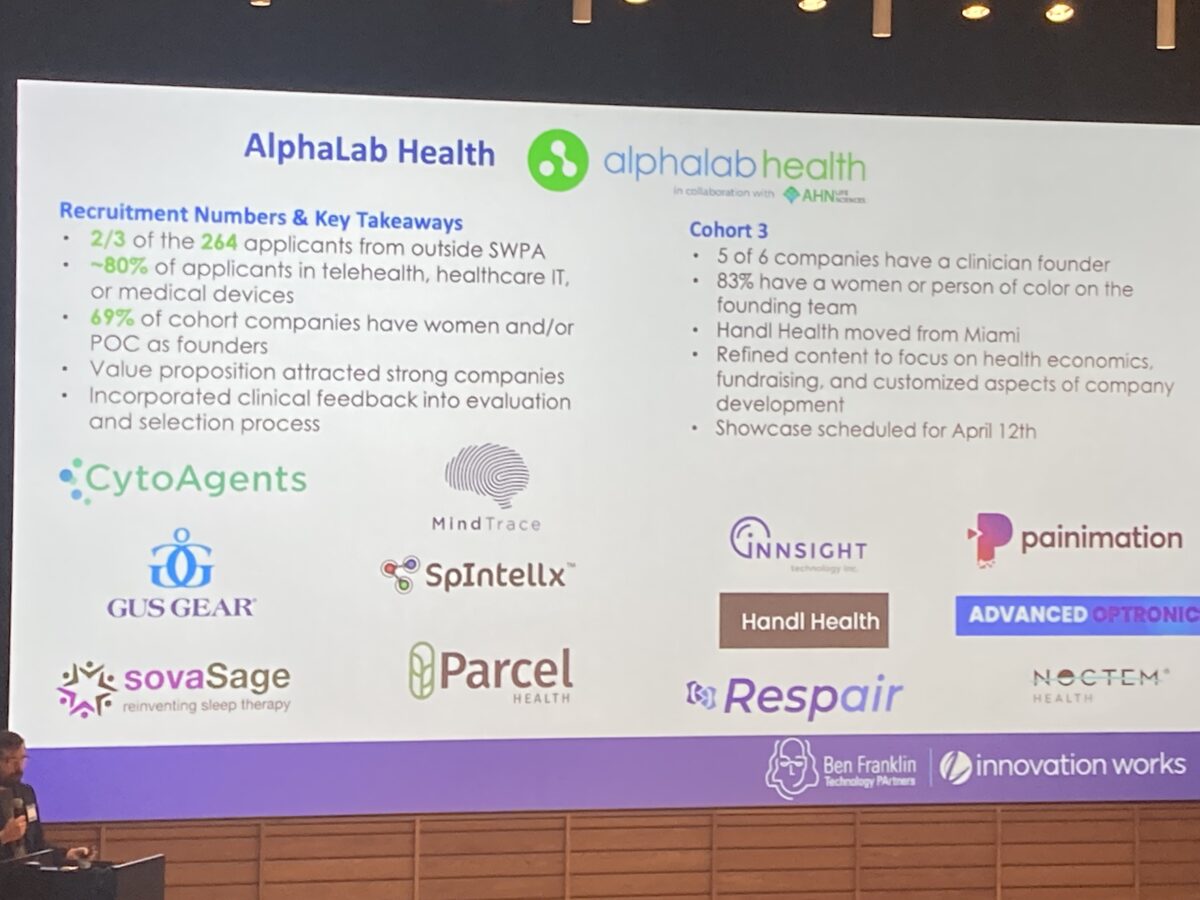Transforming Healthcare through Technology
The healthcare industry is undergoing a significant transformation, driven by the increasing adoption of technology and innovative solutions. Healthtech, a term that encompasses the intersection of healthcare and technology, is revolutionizing the way healthcare is delivered, accessed, and experienced. At the forefront of this transformation are healthtech startups, which are leveraging cutting-edge technologies to develop innovative solutions that improve patient outcomes, enhance user experience, and increase efficiency.
One of the primary drivers of healthtech’s growth is the need for more efficient and effective healthcare systems. Traditional healthcare models are often fragmented, bureaucratic, and costly, leading to suboptimal patient outcomes and wasted resources. Healthtech startups are addressing these challenges by developing solutions that streamline clinical workflows, improve data analysis, and enhance patient engagement. For instance, telemedicine platforms are enabling remote consultations, reducing the need for hospital visits and improving access to care.
The benefits of healthtech are numerous, and its potential to transform the healthcare industry is vast. By leveraging technologies such as artificial intelligence, blockchain, and the Internet of Things (IoT), healthtech startups can develop solutions that improve patient outcomes, reduce costs, and enhance the overall quality of care. Furthermore, healthtech startups can help address some of the most pressing challenges facing the healthcare industry, including the need for more personalized and preventive care.
As the healthtech industry continues to evolve, it is likely that we will see even more innovative solutions emerge. From AI-powered diagnostic tools to blockchain-based health records, the possibilities are endless. For entrepreneurs and investors looking to capitalize on this growing market, it is essential to understand the trends, opportunities, and challenges facing the healthtech industry. By doing so, they can develop healthtech startup ideas that have the potential to transform the healthcare industry and improve the lives of millions of people around the world.
Identifying Opportunities in Healthtech
Identifying potential areas for innovation in healthtech is a crucial step in developing successful healthtech startup ideas. This process involves conducting market research, analyzing consumer needs, and recognizing emerging trends. By understanding the needs of patients, healthcare providers, and payers, entrepreneurs can develop solutions that address specific pain points and improve the overall quality of care.
Market research is a critical component of identifying opportunities in healthtech. This involves analyzing industry trends, competitor activity, and market size to identify areas of opportunity. For example, the growing demand for personalized medicine and the increasing adoption of telemedicine platforms are two areas that offer significant opportunities for innovation.
Analysis of consumer needs is also essential in identifying opportunities in healthtech. This involves understanding the needs and preferences of patients, including their expectations for care, their willingness to adopt new technologies, and their concerns about data privacy and security. By understanding these needs, entrepreneurs can develop solutions that meet the needs of patients and improve their overall experience.
Recognizing emerging trends is also important in identifying opportunities in healthtech. This involves staying up-to-date with the latest developments in technology, including advancements in AI, blockchain, and IoT. By recognizing these trends, entrepreneurs can develop solutions that leverage these technologies to improve the quality of care and reduce costs.
Some of the key areas to focus on when identifying opportunities in healthtech include patient engagement, clinical decision support, and population health management. These areas offer significant opportunities for innovation and can have a major impact on improving the quality of care and reducing costs. By understanding these areas and developing solutions that address specific pain points, entrepreneurs can develop successful healthtech startup ideas that have the potential to transform the healthcare industry.
How to Develop a Winning Healthtech Startup Idea
Developing a successful healthtech startup idea requires a combination of creativity, innovation, and practicality. To increase the chances of success, entrepreneurs should follow a structured approach to generating and refining their ideas. This involves brainstorming, prototyping, and testing to validate assumptions and identify potential pitfalls.
Brainstorming is a critical step in developing a healthtech startup idea. This involves generating a wide range of ideas, without worrying about their feasibility or practicality. By using techniques such as mind mapping, free writing, and SCAMPER (Substitute, Combine, Adapt, Modify, Put to Another Use, Eliminate, and Rearrange), entrepreneurs can generate a large number of ideas and identify potential areas for innovation.
Once a list of ideas has been generated, entrepreneurs should evaluate each idea based on its potential impact, feasibility, and alignment with their goals and values. This involves conducting market research, analyzing consumer needs, and recognizing emerging trends. By evaluating each idea critically, entrepreneurs can identify the most promising ideas and refine them further.
Prototyping is another essential step in developing a healthtech startup idea. This involves creating a minimum viable product (MVP) or a prototype to test assumptions and validate ideas. By creating a prototype, entrepreneurs can gather feedback from potential customers, identify potential pitfalls, and refine their ideas further.
Testing is the final step in developing a healthtech startup idea. This involves testing the prototype or MVP with a small group of users to gather feedback and validate assumptions. By testing their ideas, entrepreneurs can identify potential issues, refine their ideas further, and increase the chances of success.
Some of the key considerations when developing a healthtech startup idea include the need for a strong value proposition, a clear understanding of the target market, and a robust business model. By focusing on these key considerations, entrepreneurs can develop successful healthtech startup ideas that have the potential to transform the healthcare industry.
Top Healthtech Startup Ideas to Watch
The healthtech industry is rapidly evolving, with new startup ideas emerging every day. Some of the most promising healthtech startup ideas include telemedicine platforms, personalized medicine solutions, and health-focused AI applications. These ideas have the potential to transform the healthcare industry, improving patient outcomes, reducing costs, and enhancing the overall quality of care.
Telemedicine platforms are one of the most promising healthtech startup ideas. These platforms enable remote consultations, reducing the need for hospital visits and improving access to care. With the increasing adoption of telemedicine, startups are developing innovative solutions that integrate AI, IoT, and other emerging technologies to enhance the patient experience.
Personalized medicine solutions are another area of focus for healthtech startups. These solutions involve using genetic data, medical histories, and other factors to develop tailored treatment plans. With the increasing availability of genetic data and advances in AI, startups are developing innovative solutions that enable personalized medicine at scale.
Health-focused AI applications are also gaining traction in the healthtech industry. These applications involve using machine learning algorithms to analyze medical data, identify patterns, and develop predictive models. With the increasing availability of medical data and advances in AI, startups are developing innovative solutions that enable early disease detection, personalized treatment plans, and improved patient outcomes.
Other promising healthtech startup ideas include health-focused IoT applications, blockchain-based health records, and AR/VR-based therapy platforms. These ideas have the potential to transform the healthcare industry, improving patient outcomes, reducing costs, and enhancing the overall quality of care.
Some of the key characteristics of successful healthtech startup ideas include a strong value proposition, a clear understanding of the target market, and a robust business model. By focusing on these key characteristics, entrepreneurs can develop successful healthtech startup ideas that have the potential to transform the healthcare industry.
Leveraging Emerging Technologies in Healthtech
Emerging technologies such as blockchain, IoT, and AR/VR are transforming the healthtech industry, enabling innovative solutions that improve patient outcomes, reduce costs, and enhance the overall quality of care. These technologies have the potential to revolutionize the way healthcare is delivered, making it more personalized, efficient, and effective.
Blockchain technology, for example, has the potential to transform the way medical records are stored and shared. By using blockchain, healthtech startups can develop secure, decentralized, and transparent systems for storing and sharing medical records, enabling better care coordination and improved patient outcomes.
IoT technology is another area of focus for healthtech startups. By using IoT sensors and devices, startups can develop innovative solutions that enable remote monitoring, real-time data analysis, and personalized care. For example, IoT-enabled wearables can track vital signs, detect anomalies, and alert healthcare providers to potential health risks.
AR/VR technology is also being used in healthtech to develop innovative solutions that enhance the patient experience. For example, AR/VR can be used to create immersive therapy experiences, enabling patients to overcome phobias, anxieties, and other mental health conditions. AR/VR can also be used to enhance medical training, enabling healthcare providers to practice complex procedures in a simulated environment.
Other emerging technologies, such as AI and machine learning, are also being used in healthtech to develop innovative solutions that improve patient outcomes and reduce costs. For example, AI-powered chatbots can be used to provide personalized support to patients, answering questions, and providing guidance on treatment options.
Healthtech startups that leverage emerging technologies have the potential to transform the healthcare industry, improving patient outcomes, reducing costs, and enhancing the overall quality of care. By staying ahead of the curve and embracing emerging technologies, healthtech startups can develop innovative solutions that meet the evolving needs of patients, healthcare providers, and payers.
Overcoming Challenges in Healthtech Startup Development
Healthtech startups face a unique set of challenges that can hinder their growth and success. Regulatory hurdles, funding constraints, and talent acquisition are just a few of the obstacles that healthtech startups must overcome. However, with the right strategies and mindset, these challenges can be overcome, and healthtech startups can thrive.
Regulatory hurdles are a major challenge for healthtech startups. The healthcare industry is heavily regulated, and healthtech startups must navigate a complex web of laws and regulations to bring their products to market. To overcome this challenge, healthtech startups must stay up-to-date on the latest regulatory developments and work closely with regulatory experts to ensure compliance.
Funding constraints are another challenge that healthtech startups face. Healthtech startups require significant funding to develop and launch their products, but securing funding can be difficult. To overcome this challenge, healthtech startups must develop a robust business plan, build a strong network of investors and partners, and explore alternative funding options such as crowdfunding and grants.
Talent acquisition is also a major challenge for healthtech startups. Healthtech startups require a team of skilled professionals with expertise in healthcare, technology, and business. To overcome this challenge, healthtech startups must develop a strong employer brand, offer competitive salaries and benefits, and provide opportunities for professional development and growth.
Despite these challenges, many healthtech startups have achieved success by developing innovative solutions that meet the needs of patients, healthcare providers, and payers. By staying focused on their mission, building a strong team, and navigating the regulatory and funding landscape, healthtech startups can overcome the challenges they face and achieve success.
Some of the key strategies for overcoming challenges in healthtech startup development include building a strong network of partners and investors, staying up-to-date on the latest regulatory developments, and developing a robust business plan. By employing these strategies, healthtech startups can overcome the challenges they face and achieve success in the competitive healthtech market.
Success Stories in Healthtech
Several healthtech startups have achieved remarkable success in recent years, transforming the way healthcare is delivered and experienced. These success stories demonstrate the potential of innovative healthtech solutions to improve patient outcomes, enhance user experience, and drive business growth.
One notable example is Teladoc Health, a telemedicine platform that connects patients with healthcare professionals remotely. Founded in 2002, Teladoc has grown to become one of the largest telemedicine companies in the world, with over 2,000 employees and a presence in over 125 countries. The company’s success can be attributed to its user-friendly platform, extensive network of healthcare providers, and strategic partnerships with leading health systems and insurers.
Another successful healthtech startup is 23andMe, a personalized medicine company that offers genetic testing and analysis services. Founded in 2006, 23andMe has become a leading player in the direct-to-consumer genetic testing market, with over 10 million customers worldwide. The company’s success is driven by its innovative approach to genetic testing, user-friendly interface, and commitment to advancing genetic research.
Propeller Health is another healthtech startup that has achieved significant success. Founded in 2010, Propeller Health offers a digital platform for managing chronic respiratory diseases such as asthma and COPD. The company’s platform uses sensors, mobile apps, and data analytics to help patients track their condition, receive personalized insights, and improve their treatment outcomes. Propeller Health has partnered with leading pharmaceutical companies and health systems, and has received numerous awards for its innovative approach to disease management.
These success stories demonstrate the potential of healthtech startup ideas to transform the healthcare industry. By leveraging innovative technologies, user-centered design, and strategic partnerships, healthtech startups can create scalable and sustainable business models that drive growth and improve patient outcomes. As the healthtech market continues to evolve, we can expect to see more success stories emerge, driving innovation and progress in the years to come.
Future Outlook for Healthtech Startups
The healthtech industry is poised for significant growth and transformation in the coming years. As the global healthcare landscape continues to evolve, healthtech startups will play a crucial role in shaping the future of healthcare. In this article, we will explore the trends, opportunities, and potential disruptions that will impact the healthtech startup ecosystem.
One of the key trends that will shape the future of healthtech is the increasing adoption of artificial intelligence (AI) and machine learning (ML) in healthcare. AI-powered healthtech solutions will continue to improve patient outcomes, streamline clinical workflows, and enhance the overall user experience. Healthtech startups that leverage AI and ML will be well-positioned to capitalize on this trend and drive innovation in the industry.
Another trend that will impact the healthtech startup ecosystem is the growing importance of data analytics and interoperability. As the healthcare industry becomes increasingly digitized, the need for seamless data exchange and analytics will become more pressing. Healthtech startups that develop innovative solutions for data analytics and interoperability will be in high demand, as healthcare providers and payers seek to unlock the value of their data.
The Internet of Medical Things (IoMT) is another area that will experience significant growth in the coming years. IoMT refers to the network of medical devices, sensors, and wearables that are connected to the internet and collect data on patient health. Healthtech startups that develop innovative IoMT solutions will be able to capitalize on this trend and improve patient outcomes.
Despite the many opportunities in the healthtech startup ecosystem, there are also potential disruptions on the horizon. One of the biggest challenges facing healthtech startups is the increasing regulatory burden. As the healthcare industry becomes increasingly regulated, healthtech startups will need to navigate complex regulatory frameworks to bring their products to market.
Another potential disruption is the growing competition from established healthcare companies. As the healthcare industry becomes increasingly digitized, established companies are beginning to take notice of the opportunities in healthtech. Healthtech startups will need to be innovative and agile to compete with these established players.
For entrepreneurs and investors looking to capitalize on the growing healthtech market, there are several key takeaways. First, it is essential to stay up-to-date with the latest trends and developments in the industry. Second, it is crucial to identify areas of unmet need and develop innovative solutions to address these needs. Finally, it is essential to build a strong team and secure funding to bring your healthtech startup idea to life.
In conclusion, the future of healthtech startups looks bright, with many opportunities for innovation and growth. However, there are also potential disruptions on the horizon, and entrepreneurs and investors will need to be aware of these challenges to succeed. By staying informed, identifying areas of unmet need, and building strong teams, healthtech startups can capitalize on the growing demand for innovative healthcare solutions.







